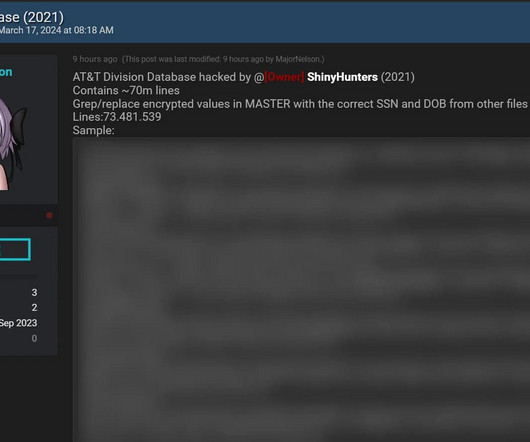New Blog Moderation Policy
Schneier on Security
JUNE 19, 2024
There has been a lot of toxicity in the comments section of this blog. I’ve been able to maintain an anonymous comment section on this blog for almost twenty years. Recently, we’re having to delete more and more comments. Not just spam and off-topic comments, but also sniping and personal attacks. Maybe its time is up.













Let's personalize your content